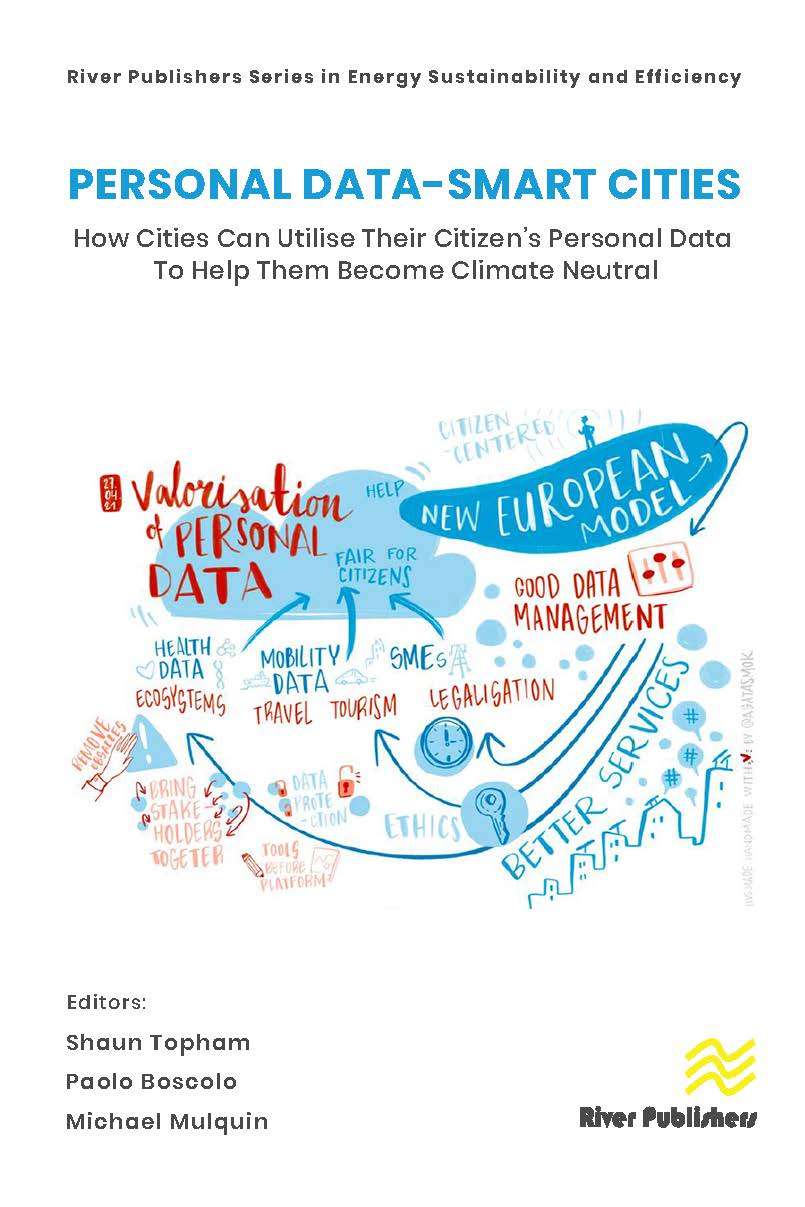
Personal Data-Smart Cities: How cities can Utilise their Citizen's Personal Data to Help them Become Climate Neutral
River Publishers Series in Energy Sustainability and Efficiency
Personal Data-Smart Cities: How cities can Utilise their Citizen's Personal Data to Help them Become Climate Neutral
Editors:
Shaun Topham, DataVaults Project, Ireland
Paolo Boscolo, Comune of Prato and Major Cities of Europe
Michael Mulquin, Open and Agile Smart Cities
ISBN: 9788770228008
This book sets out to address some of the issues that a smart city needs to overcome to make use of both the data currently available to them and how this can be enhanced by using emerging technology enabling a citizen to share their personal data, adding value.
It provides answers for those within a smart city, advising their mayors or leaders on introducing new technology. We will cover the topic so as to enable many different public officials to be able to understand the situation from their own perspective, be they lawyers, financial people, service providers, those looking at governance structures, policy makers, etc.
We are contributing to the new model for the European Data Economy. Case studies of existing best practice in the use of data are augmented with examples of embracing a citizen’s personal data in the mix, to enable better services to develop and potential new revenue streams to occur. This will enable new business models and investment opportunities to emerge.
We will address the topic of how to put a value on data and will conclude by looking at what new technologies will be emerging in the coming years, to help cities with carbon-neutral targets to have more chance of succeeding.
It provides answers for those within a smart city, advising their mayors or leaders on introducing new technology. We will cover the topic so as to enable many different public officials to be able to understand the situation from their own perspective, be they lawyers, financial people, service providers, those looking at governance structures, policy makers, etc.
We are contributing to the new model for the European Data Economy. Case studies of existing best practice in the use of data are augmented with examples of embracing a citizen’s personal data in the mix, to enable better services to develop and potential new revenue streams to occur. This will enable new business models and investment opportunities to emerge.
We will address the topic of how to put a value on data and will conclude by looking at what new technologies will be emerging in the coming years, to help cities with carbon-neutral targets to have more chance of succeeding.
Citizenâs data, personal data, data platforms, smart cities, data economy, data strategy, urban data, business model, trust, public infrastructure, open data, city data, data ecosystem, climate-neutral cities, data governance, data valuation, data protection, collaboration model, digital twin, data quality assessment, data utility, digital transformation.
Chapter 11: Business Models
by Shaun Topham